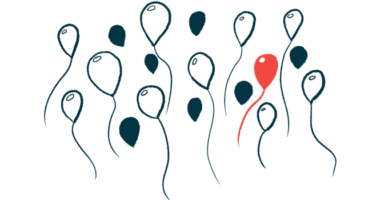SAT-3153 for DMD wins orphan drug, rare pediatric disease status
Novel therapy, still in early studies, aims to rebuild muscle tissue
by |

The U.S. Food and Drug Administration (FDA) has granted both orphan drug and rare pediatric disease status to SAT-3153, Satellos Bioscience’s first-in-class therapy candidate to rebuild muscle tissue in Duchenne muscular dystrophy (DMD).
“Receiving orphan drug designation and rare pediatric disease designations are important milestones in advancing our novel small molecule therapeutic approach to treating Duchenne,” Frank Gleeson, CEO of Satellos, said in a press release.
The company now is testing SAT-3153 in preclinical studies to gather enough data to file an investigational new drug (IND) application with the FDA. If granted, the IND would allow Satellos to advance the small molecule into clinical trials — a step the company hopes to reach sometime in 2024.
“We continue to make important progress in our drug development program and IND-enabling studies, and we are focused on advancing SAT-3153 into the clinic next year,” Gleeson said.
Developer Satellos expects to launch clinical trials next year
Orphan drug status is awarded to medications that target diseases affecting fewer than 200,000 people in the U.S. With this designation Satellos can benefit from tax credits, exemption from fees, and up to seven years of exclusive rights to sell SAT-3153, if approved.
The rare pediatric disease designation provides incentives to develop treatments for serious or life-threatening disorders primarily affecting children and adolescents — patients ages 18 or younger. DMD, the most common type of muscular dystrophy, is often diagnosed in patients around the ages of 3 to 6.
With that status, if SAT-3153 is ultimately approved, Satellos may be eligible for a voucher that can be used expedite another medication’s review process or be sold to another company.
DMD is caused by mutations in a gene that codes for dystrophin, a protein that protects muscles from damage during the regular wear and tear of movement. As a result of the mutations, the muscles waste away over time.
Muscle tissue is home to a type of stem cells, called satellite cells, from which muscle cells can develop. They are normally inactive, but when muscles waste away, satellite cells turn into muscle cells and replace the damaged ones. They typically also self-renew to maintain a pool of stem cells.
In muscles affected by DMD, however, satellite cells do not multiply as well as they should, making it harder for muscle tissue to repair itself or regenerate.
This is thought to occur due to changes in stem cell polarity, which allows stem cells to divide into two different cells. In this asymmetric cell division, one part develops into a muscle cell, while the other stays as a stem cell.
A signaling pathway called Notch is involved in asymmetric cell division, and researchers think it might be used as a target to rescue the ability of satellite cells to multiply in muscles affected by DMD.
SAT-3153 is a small molecule given orally that’s designed to block an as-yet undisclosed kinase protein, which the company believes controls the Notch signaling pathway. That communication route allows a signal to be transmitted as a series of molecular events within cells.
In preclinical studies, inhibiting that particular kinase protein changed stem cell polarity, leading to improved muscle regeneration, increased muscle size, and better muscle function, according to Satellos.
It is thought that SAT-3153 may benefit all people with DMD irrespective of the mutation they carry.








